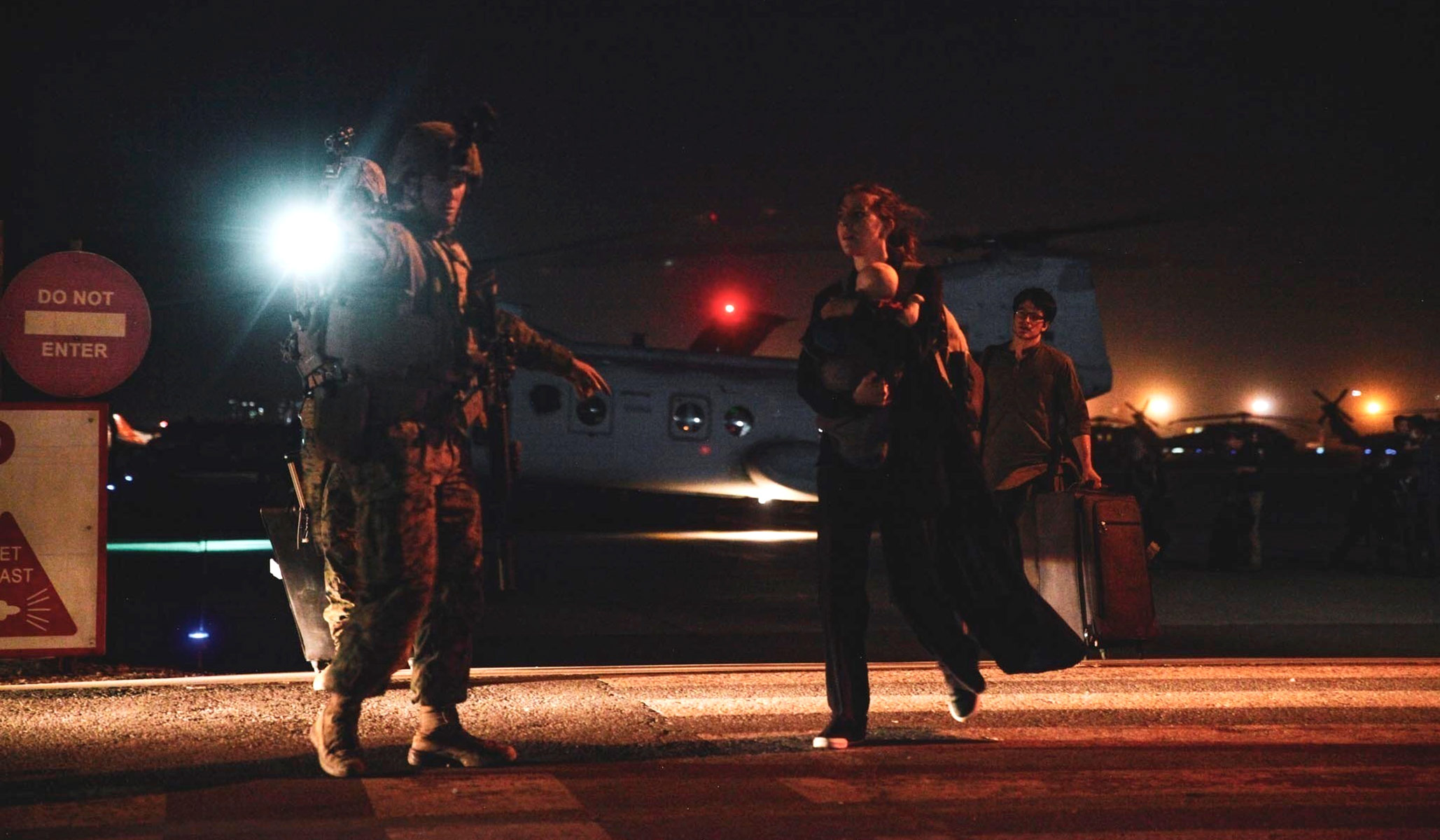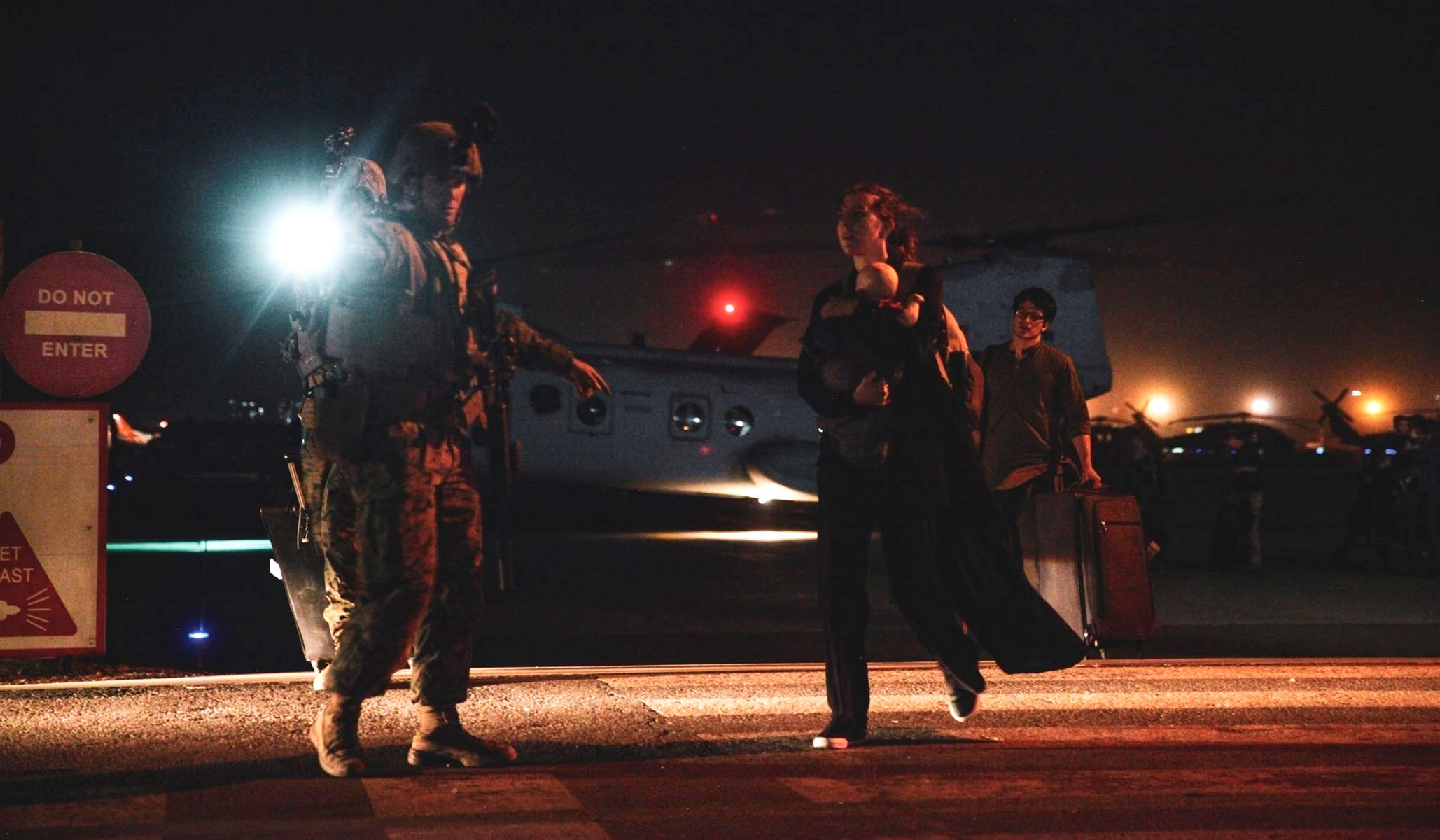
What follows are some initial thoughts on the fall of Kabul. I will follow up shortly with more on what this debacle might mean for America’s position in the world:
- Biden’s speech on Monday about the withdrawal of U.S. troops was a much more logically coherent and well-constructed speech than any we have heard from him before. It was also a very steely and cold-hearted speech to the point of being a little unseemly. Even as he was consigning the Afghans who had been U.S. allies until yesterday to perdition, he was also criticizing their unwillingness to defend their country and blaming the consequences of America’s retreat on them. Yet the Afghan army’s advantages he cited had been undermined by the withdrawal of U.S. technical and logistical support as soon as a firm date for the scuttle had been announced. That date had seemingly been determined — and announced to NATO allies — in accord not with military priorities and the safety of soldiers and civilians loyal to the mission but with the political “optics” of the date (i.e., before 9/11). All of which gave the speech a flavor of “America First — and the Rest Nowhere!” It could even be said to have out-Trumped Trump in a single-minded national egotism at odds with the theoretical idealism of the Afghan intervention and even more at odds with the comradeship that has developed between U.S. forces and other allied soldiers. That probably reflects America’s public mood at the moment (of which, more below). But will that mood remain the same if the situation in Kabul worsens appreciably and the De Gaulle–like ruthlessness of leaving the Afghans in the lurch is followed by executions, massacres, rapes, and worse?
- Worse? The immediate risk to Biden and the U.S. must be that of the Mother of All Hostage Crises. If there are 10,000 Americans left behind in Afghanistan, that leaves the U.S. with massive problems and the Taliban with strategic opportunities. It’s said in the administration’s defense that the evacuations from Kabul airport are now going well. Good. But the Taliban have a “ring of steel” around the airport, and U.S. forces have no capability of getting Americans into it without the Taliban’s cooperation. That’s a pretty serious limitation which, incidentally, the French and the British seem to be handling better than the Pentagon, rescuing more (of fewer) nationals. All those Americans outside the perimeter are now effectively hostages for America’s good behavior. It points to the following scenario. For the immediate future, the Taliban will cooperate with the U.S. (and vice versa) to consolidate their seizure of power, allowing most of the remaining Americans to depart. Those released will not include Afghans who materially assisted the U.S. intervention — such as the Afghan Special Forces — or who have useful knowledge of American military intelligence. And the likelihood is that as the evacuations wind down, a number of important Americans will be found to be “missing” and hard to track down. They will then become pawns in a long diplomatic blackmail in which the Taliban hold most of the kings, queens, rooks, and bishops.
- President Biden’s defense against the charge of incompetence in the Afghan endgame, belatedly echoed by his media supporters, is that it’s impossible to withdraw without leaving chaos behind. They add that U.S. forces must avoid at all costs being sucked back into the maelstrom. In reality there’s no necessary choice between a strategic retreat and a tactical counterattack. Strategic retreats are often camouflaged by tactical attacks that also serve to make clear to the enemy that the retreating force is still a formidable one. Hence the remark of the distinguished historian of both world wars, the late Norman Stone: “The word ‘inevitable’ must never be used in history except to describe a German counter-attack.” America and our allies can rescue anything from what is a historical catastrophe on the scale of the falls of Paris, Dien Bien Phu, and Saigon only if we show an immediate determination to protect our interests and our honor (which is a synonym for reputation in global affairs).
- And what of the Afghans? It’s clear that for the moment and probably for a long time that Afghanistan is “lost.” The Taliban were easier to oust in 2001 than they would be today since they were then friendless while now their friends and allies include Russia, China, Iran, and Pakistan. To be sure, there are reports that the son of the late Ahmad Shah Masoud, the “Lion of Panjshir” and the leading pro-Western figure in the struggle against the Soviet invasion, is retreating to his father’s old redoubt and appealing for Western aid to mount a resistance to the Taliban. My guess is that Biden and most of the Republican leaders will strive to discourage any such support for a number of reasons: The prospects of resistance obviously look poor today; the “missing” American hostages will be an argument against aid; and the leaders of both parties would plainly like to wash their hands of Afghanistan as they did of Vietnam. Though any resistance faces an uphill struggle, however, it should not be dismissed entirely, as a friend who spent many years reporting on the anti-Soviet guerrilla struggle and its factions confirms: Many Afghans who fought for the government will reason that they might as well keep fighting since they’ll be persecuted and killed by the Taliban anyway. Some will be inspired by strong notions of “honor” aroused by the chilly accusation from President Biden that they didn’t fight for their country. And the tribal areas that once were a sanctuary for Ahmad Shah Masoud will probably prove hospitable to his son and his followers. My cold calculation is that the Western powers — Britain and Europe more than the U.S. this time — will do nothing for a while but settle down in a few years to subsidizing a long-term, low-level guerrilla war on the model of subsidies to various Kurdish insurrections over the years. What happens then will depend on how well or badly the Taliban govern. And that’s surely a factor on the resistance’s side.
- Any honest person has to agree with Andy McCarthy’s argument that Biden and Trump share responsibility for the decision to “leave and lose” Afghanistan — though I would add an unequal share for the disorderly scuttle of our departure. There’s a third party that shares that responsibility, however, and that’s the foreign-policy establishment in general, and particularly the State Department and the National Security Council in the Trump and Biden years. However strongly the Mattises and McMasters of that world disagreed with Trump’s desire to leave Afghanistan, that was the policy on which he had won the 2016 election and which both parties had embraced. They were well within their rights to make the case for staying, which is a stronger one than most conservatives (including me) have allowed in recent years. Afghanistan had stabilized to the extent that fewer than 3,000 U.S. troops were needed to keep the country quiet and out of the hands of global jihadist terrorists. True, many more American deaths had been inflicted in earlier years, but by 2018 or so it’s arguable that those deaths increased the power of the argument for a continued intervention. We didn’t want to nullify that sacrifice. All that said, however, the president thought differently, and he had the right under the Constitution to expect his officers to implement that decision or resign. Some did resign; some obstructed, delayed, and temporized. But suppose that they had implemented his decision over a longer time scale, with careful planning, and with a realistic threat to offer continued aid and air support to the Afghan army after our departure. It’s a possibility that we might then have left Afghanistan without losing it, and a likelihood that even if we had lost Afghanistan, we would have left in good order without leaving thousands of our countrymen and our allies behind to hobble and weaken us in our future dealings with whatever regime — a pure Taliban one or a Taliban-Plus coalition — took over in our wake. That unwillingness to see that foreign policy-making has to take democracy into account was itself an invisible failure of duty, and it has spawned the all-too-visible failures we watch on our social media and televisions.
